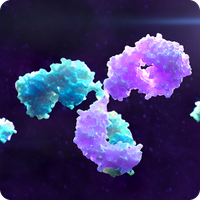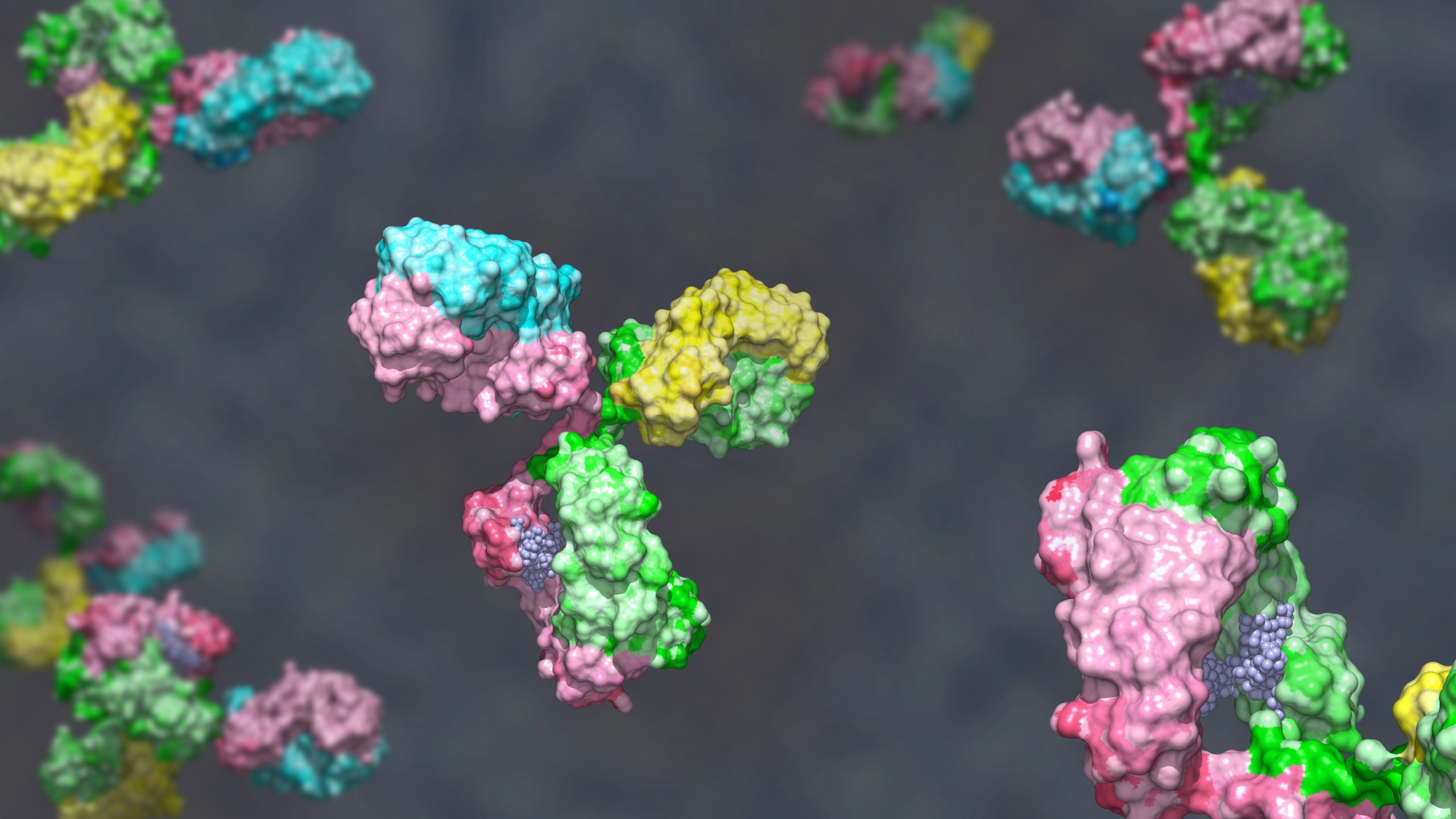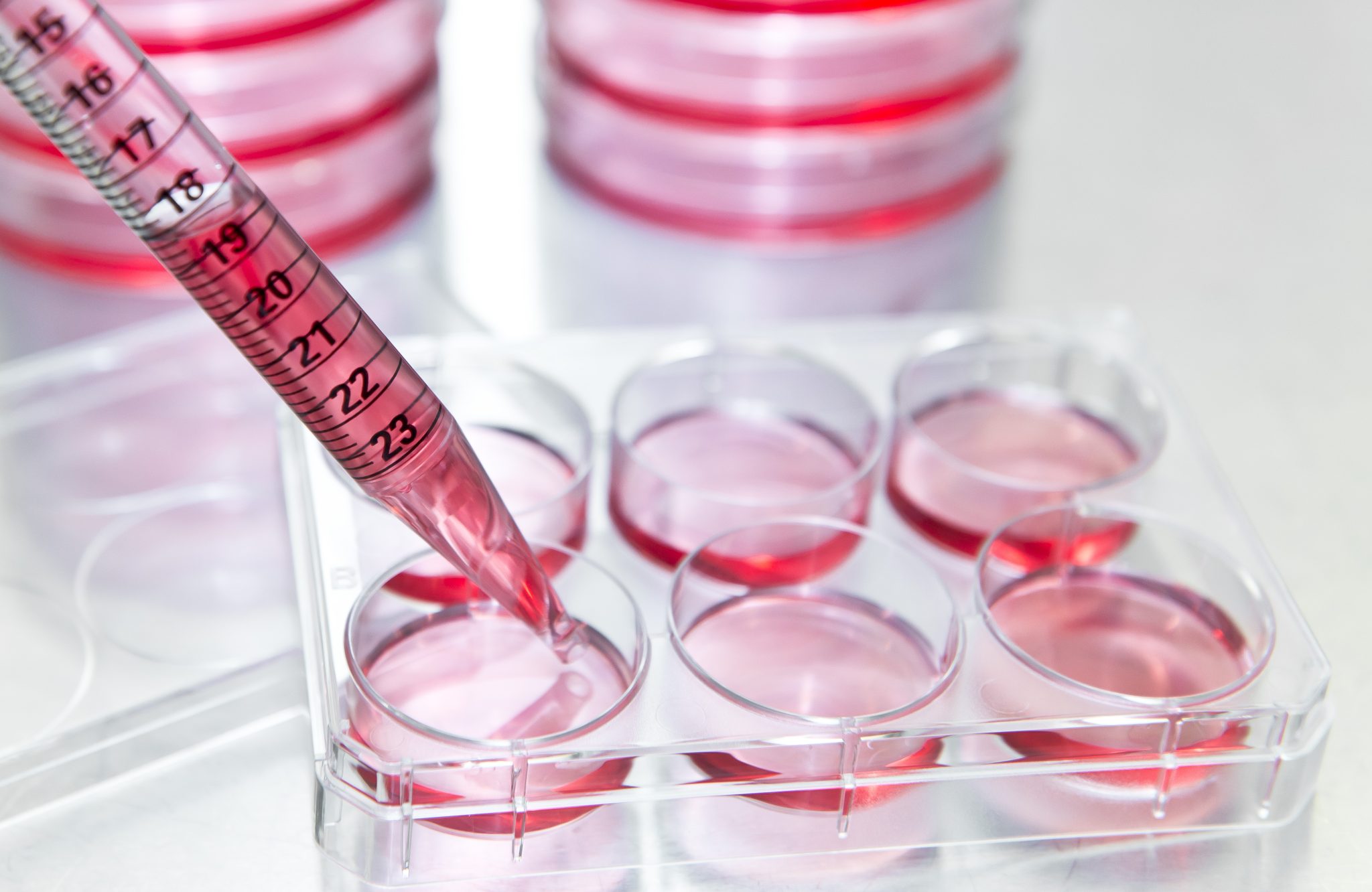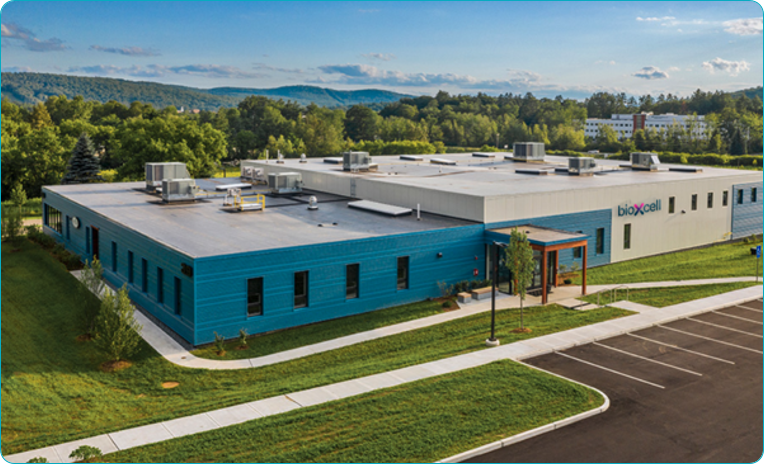For immunologists researching autoimmunity, antibodies are both vital tools and potential therapeutic agents.
Bio X Cell and The Scientist
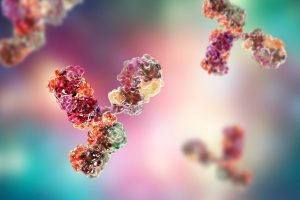 The immune system is responsible for safeguarding the body from external and internal dangers. It does this, for the most part, by targeting and eliminating perceived threats ranging from invading pathogens, foreign particles, and compromised cells. When immune targeting goes awry, autoimmunity-where the immune system targets normal parts of the body-may result. Autoimmune diseases are highly complex, creating challenges for researchers seeking to better understand their etiology and scientists looking to design new treatment options.
The immune system is responsible for safeguarding the body from external and internal dangers. It does this, for the most part, by targeting and eliminating perceived threats ranging from invading pathogens, foreign particles, and compromised cells. When immune targeting goes awry, autoimmunity-where the immune system targets normal parts of the body-may result. Autoimmune diseases are highly complex, creating challenges for researchers seeking to better understand their etiology and scientists looking to design new treatment options.
Mechanisms of Autoimmunity
Immune activation largely centers on T cells and B cells. T cells both eliminate pathogens and maintain tolerance, while B cells produce antibodies to mark targets for destruction. Both cell types are therefore key players in autoimmune disease when the activation process goes awry.1 However, because the activation process is multifaceted, there are many ways to alter T and B cell activation. This creates a diverse array of possibilities with different pathogenic mechanisms, affected regions, and clinical presentations. To date, scientists have discovered around 150 autoimmune conditions, including multiple sclerosis (MS), type 1 diabetes (T1D), and rheumatoid arthritis (RA).2
That said, autoimmune disorders can be grouped based on commonalities. For example, T cell activation-centric diseases such as MS and T1D are characterized by increased inflammation, excessive cytotoxicity, and more immune cell infiltration into affected areas. Alternatively, B cell activation-centric diseases such as RA and systemic lupus erythematosus (SLE) are driven by excessive quantities of circulating antibodies and thereby more likely to affect the whole body.2
Autoimmune Disease Therapeutic Strategies
When it comes to treating autoimmune diseases, scientists have largely focused on broadly suppressing excessive immune function by acting upon the complex molecular and cellular signaling networks driving activation. However, this complexity has impeded progress. For example, while a combination of the B-cell activating factor inhibitor belimumab and the CD20-inhibitor rituximab yielded more effective results for Sjogren's disease than each agent by itself,3 the opposite was the case when the same two agents were used together for SLE.4
Such complications, as well as the potential for side effects caused by a lack of specificity, are leading researchers to more actively explore the potential of antigen-specific immunotherapies.2 These strive to diminish the effect of autoantigens without significantly impacting overall systemic immunity. Some strategies in this area include using high and repeated autoantigen doses to induce immune tolerance via T cell exhaustion, restimulation-induced cell death, or regulatory T cell generation.2 Alternatively, researchers are exploring whether altered peptide ligands can attenuate activation processes by outcompeting endogenous T and B cell receptor ligand counterparts. Non-stimulatory major histocompatibility complex proteins are of particular interest here, as they are required for T and B cell activation.2
How Antibody Reagents Accelerate Autoimmune Disease Research
Developing treatments for autoimmune diseases, whether cell-targeting or antigen-specific, requires a thorough understanding of the mechanisms and potential targets underlying specific autoimmune conditions.2 Scientists need high quality tools and reagents to develop the experiments and generate the data necessary for this endeavor. Commercial reagent companies can offer a large catalog of antibodies targeting key proteins involved in immune activation and autoimmune disease pathogenesis.
In addition, biosimilar antibodies, such as those in Bio X Cell's InVivoSIM™ offer researchers a cost-effective alternative to pharmaceutical-grade therapeutic agents for preclinical studies. These biosimilars feature the same variable region sequences as the original FDA-approved drugs, enabling the study of drug mechanisms and biological activity through functional assays, flow cytometry, ELISA, immunohistochemistry, pharmacokinetic analysis, and more.
InVivoSIM™ antibodies are designed for laboratory use and are ideal for modeling the activity of clinically relevant biologics. This includes biosimilars for widely used therapeutics such as adalimumab (anti-TNF-α), anifrolumab (anti-IFNAR1), tocilizumab (anti-IL-6R), and secukinumab (anti-IL-17A). These antibodies are formulated for in vivo use-featuring ultra-low endotoxin levels and free from preservatives, stabilizers, and carrier proteins.
Complementing InVivoSIM™ antibodies, Bio X Cell's InVivoMab™ Plus antibodies target many of the same pathways but are engineered with various isotypes to support studies in mouse models. These antibodies allow researchers to fine-tune immune effector functions or control for isotype-specific effects, making them powerful tools for dissecting immune mechanisms and evaluating therapeutic strategies in vivo.
Despite significant research and clinical advances, autoimmune diseases continue to afflict people around the world. Novel approaches such as antigen-specific based immunotherapy offer potential for more effective therapeutics in the future, but more work-at the bench and at the bedside-remains to refine and improve these approaches for better clinical effectiveness.
References
- Pisetsky DS. Pathogenesis of autoimmune disease. Nat Rev Nephrol. 2023;19:509-524.
- Song Y, et al. Evolving understanding of autoimmune mechanisms and new therapeutic strategies of autoimmune disorders. Sig Transduct Target Ther. 2024;9:263.
- Mariette X, et al. A randomized, phase II study of sequential belimumab and rituximab in primary Sjögren's syndrome. JCI Insight. 2022;7(23):e163030.
- Aranow C, et al. Efficacy and safety of sequential therapy with subcutaneous belimumab and one cycle of rituximab in patients with systemic lupus erythematosus: the phase 3, randomised, placebo-controlled BLISS-BELIEVE study. Ann Rheum Dis. 2024;83(11):1502-1512.

